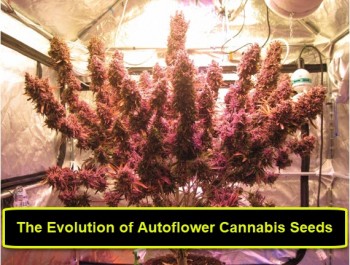
The Cancer-Fighting Plant They Don't Want You to Know About: Massive Study Reveals What We've Known All Along
For decades, cancer patients have whispered about it in support groups, shared stories in online forums, and passed along recipes like underground resistance fighters. They've spoken of Rick Simpson Oil, Charlotte's Web, and countless other cannabis preparations that seemed to slow tumors, ease suffering, and sometimes—against all medical expectations—help beat cancer entirely. The medical establishment dismissed these stories as anecdotal, desperate patients grasping for false hope in the face of terminal diagnoses.
Well, those patients just got vindicated in the biggest way possible.
A massive new meta-analysis published in Frontiers in Oncology—the largest study of its kind ever conducted—examined over 10,000 scientific papers about cannabis and cancer using artificial intelligence. The results are staggering: 75% of studies support cannabis not just for symptom management, but potentially for fighting cancer itself. The scientific consensus that prohibition advocates claim doesn't exist? It's been there all along, buried under layers of political interference and pharmaceutical industry suppression.
Lead researcher Ryan Castle called the findings "shocking" in terms of scientific consensus. In most controversial medical topics, researchers are lucky to see 55-45 agreement. But when it comes to cannabis and cancer, the evidence points overwhelmingly in one direction: this plant doesn't just help patients feel better while they fight cancer—it might actually help them win the fight.
The timing of this revelation couldn't be more perfect. As politicians like Trump propose eliminating medical marijuana protections and pharmaceutical companies continue blocking research into natural alternatives, we finally have comprehensive evidence of what cancer patients have known intuitively for generations: cannabis is medicine, and it might be some of the most powerful cancer medicine on Earth.
The Evidence: 10,000 Studies Can't Be Wrong
The Frontiers in Oncology study represents a methodological breakthrough in cannabis research. Rather than conducting yet another small-scale clinical trial hampered by federal restrictions, researchers used artificial intelligence to analyze the language patterns across thousands of existing scientific papers. This approach bypassed the political obstacles that have crippled cannabis research for decades while providing a bird's-eye view of the entire scientific landscape.
The AI analyzed two key metrics: keyword frequency and sentiment analysis. Essentially, the algorithms examined how often certain terms appeared in research papers and whether scientists wrote about cannabis positively, negatively, or neutrally when discussing cancer applications. Both measures pointed decisively in the same direction.
The results were unprecedented. Support for medical cannabis was 31 times stronger than opposition across the entire body of literature. To put this in perspective, most medical interventions considered "proven" show far less consensus among researchers. When 75% of scientific studies support a treatment approach, that's not just statistical significance—it's overwhelming evidence.
The analysis broke down into three distinct categories, each telling its own story:
Symptom Management:
Cannabis showed more than twice the positive support for managing cancer-related pain and chemotherapy-induced nausea compared to negative findings. This category represents the "safe" cannabis research that even prohibition advocates grudgingly acknowledge—using cannabis to help patients feel better during conventional treatment.
Cancer Treatment Support:
Studies were 134% more likely to support cannabis alongside conventional therapies than oppose such combinations. This finding suggests that cannabis doesn't just manage symptoms—it might actually enhance the effectiveness of chemotherapy and radiation while reducing their harmful side effects.
Anticancer Effects:
This category produced the most remarkable results. Research suggested that cannabinoids might directly inhibit tumor growth, promote cancer cell death (apoptosis), and reduce metastasis—the spread of cancer to other parts of the body. These aren't just symptom management benefits; they're potential mechanisms for actually fighting the disease itself.
Dr. Castle noted that this level of consensus is "shocking" in medical research, especially for a topic surrounded by political controversy. When you remove the political noise and focus purely on scientific evidence, the case for cannabis as cancer medicine becomes overwhelming.
The study's methodology also accounted for research quality and study design variations. Critics often dismiss cannabis research as poorly designed or biased, but this analysis found positive results across high-quality studies as well as preliminary research. The consistency of findings across different research approaches strengthens rather than weakens the conclusions.
What Cancer Patients Have Always Known
Long before this meta-analysis validated their experiences, cancer patients were conducting their own experiments with cannabis medicine. The stories are legendary in cannabis circles: Rick Simpson, the Canadian engineer who claimed his skin cancer disappeared after applying homemade cannabis oil. The parents who moved across the country to access CBD for their children's brain tumors. The terminal patients who outlived their prognoses while using cannabis alongside conventional treatment.
These weren't isolated anecdotes—they were part of a vast underground network of patients sharing information, recipes, and hope. Online forums like Cannabis Cancer Support and countless Facebook groups became repositories of practical knowledge about dosing, extraction methods, and strain selection. Patients taught each other what medical schools refuse to include in their curricula.
Tommy Chong's prostate cancer recovery using cannabis oil. Olivia Newton-John's advocacy for medical cannabis during her breast cancer battle. Dennis Hill, a biochemist who documented his stage IV prostate cancer's complete remission using cannabis concentrates. These high-profile cases represent thousands of similar stories from ordinary patients who found relief through cannabis medicine.
The Rick Simpson Oil (RSO) movement exemplifies this grassroots medical revolution. Simpson's protocol—consuming gradually increasing doses of high-THC cannabis concentrate—has been replicated by countless patients worldwide. While medical authorities dismissed Simpson as a charlatan, patients reported remarkable results: tumors shrinking, pain disappearing, and cancer markers improving.
What makes these patient experiences particularly compelling is their consistency across different cancer types, treatment protocols, and geographic regions. Breast cancer patients in California, lung cancer patients in Colorado, and brain tumor patients in Canada all reported similar benefits from cannabis medicine. This wasn't placebo effect or wishful thinking—it was evidence of reproducible biological effects.
The underground nature of this medical movement was necessitated by prohibition, not patient preference. Cancer patients didn't choose to experiment with unregulated cannabis products because they preferred alternative medicine—they chose it because conventional medicine had failed them and cannabis was their only remaining option.
Dr. Frankel, an oncologist who pioneered cannabis medicine protocols, noted that "patients were using cannabis medicine effectively long before doctors understood why it worked." The scientific understanding is finally catching up to clinical experience, but patients didn't wait for permission to save their own lives.
The Pharmaceutical Roadblock: Why Cancer Medicine Stays Illegal
The most infuriating aspect of cannabis prohibition isn't just that it denies patients access to potentially life-saving medicine—it's that prohibition exists specifically to protect pharmaceutical profits rather than public health. Cannabis represents an existential threat to the cancer treatment industry, which generates over $150 billion annually in the United States alone.
Consider the implications if cannabis proves effective against cancer. Conventional cancer treatment involves surgery, chemotherapy, and radiation—each generating massive revenue for hospitals, pharmaceutical companies, and medical device manufacturers. Chemotherapy drugs alone can cost tens of thousands of dollars per treatment cycle, with some targeted therapies exceeding $100,000 annually.
Cannabis, by contrast, is a plant that patients can grow in their backyards. Even high-quality medical cannabis products cost a fraction of conventional cancer drugs. RSO made at home costs perhaps $100-200 per month; equivalent pharmaceutical interventions cost thousands. The economic threat to established medical industries is obvious.
But the threat goes beyond just direct competition. Cannabis medicine challenges the entire paradigm of cancer treatment. Instead of toxic interventions that often cause severe side effects, cannabis offers a treatment approach that's generally well-tolerated and may actually enhance quality of life while fighting disease.
The pharmaceutical industry has responded to this threat through multiple strategies. They've funded anti-cannabis research designed to find negative effects. They've lobbied against legalization and research liberalization. They've influenced medical education to exclude cannabis medicine from curricula. Most perniciously, they've captured regulatory agencies to ensure that cannabis remains difficult to research and impossible to patent.
The Schedule I classification of cannabis serves pharmaceutical interests perfectly. By defining cannabis as having "no medical value," federal law prevents the research that would prove its medical utility while enabling pharmaceutical companies to develop synthetic alternatives they can patent and control.
Consider Marinol (dronabinol), synthetic THC approved by the FDA for cancer-related nausea. This pharmaceutical version of a single cannabis compound costs hundreds of dollars while providing inferior results compared to whole-plant medicine. Patients consistently report that natural cannabis works better than Marinol, but they're forced to choose between legal synthetic versions or illegal natural alternatives.
The recent discovery of new cannabinoids like cannabielsoxa, which shows anti-cancer properties, threatens to accelerate pharmaceutical industry capture of cannabis medicine. Rather than allowing patients to access whole-plant preparations containing dozens of potentially therapeutic compounds, pharmaceutical companies want to isolate, synthesize, and patent individual cannabinoids for maximum profit.
This explains why cannabis research faces such systematic obstruction. It's not about protecting public health—it's about protecting pharmaceutical monopolies from natural competition that patients prefer and that works better than synthetic alternatives.
Study Limitations and Future Directions
While the Frontiers in Oncology meta-analysis provides compelling evidence for cannabis as cancer medicine, it's important to acknowledge its limitations and what additional research is needed to fully establish therapeutic protocols.
The most significant limitation is that many of the studies showing anticancer effects were conducted in laboratory settings using cell cultures or animal models rather than human clinical trials. Cancer cells in petri dishes don't always behave the same way as tumors in living patients. Animal studies, while more relevant than cell culture research, still don't perfectly predict human responses.
This research gap exists primarily because of federal prohibition, not scientific disinterest. Researchers would love to conduct large-scale human trials of cannabis for cancer, but Schedule I restrictions make such studies nearly impossible. The few human studies that have been conducted typically focus on symptom management rather than anticancer effects because federal agencies are more likely to approve research into "palliative" rather than "curative" applications.
The meta-analysis methodology, while innovative, also has inherent limitations. Sentiment analysis of scientific papers provides valuable insights into researcher opinions, but it's not the same as systematic review of clinical outcomes. The AI algorithms may miss nuances in scientific writing or misinterpret complex findings.
Additionally, the quality of underlying studies varies significantly. While the analysis found positive results across different research quality levels, some studies included in the meta-analysis may have methodological flaws that compromise their reliability. The researchers acknowledged this limitation but noted that the consistency of findings across different study types strengthens their conclusions.
Future research needs to focus on several key areas. First, large-scale human clinical trials are essential to confirm the laboratory findings showing direct anticancer effects. Second, optimal dosing protocols need to be established for different cancer types and stages. Third, the interactions between different cannabinoids need better understanding to optimize whole-plant preparations.
The recent identification of 33 genetic markers influencing cannabinoid production offers exciting possibilities for personalized cancer medicine. Future cannabis strains could be designed specifically for different cancer types, potentially maximizing therapeutic effects while minimizing side effects.
Delivery method research is also crucial. While Rick Simpson Oil represents one successful approach, other methods like vaporization, sublingual tinctures, and suppositories may prove more effective for specific applications. Understanding how different consumption methods affect bioavailability and therapeutic outcomes will help optimize treatment protocols.
Perhaps most importantly, research needs to focus on combination therapies. Rather than viewing cannabis as an alternative to conventional cancer treatment, future research should explore how cannabis can enhance the effectiveness of surgery, chemotherapy, and radiation while reducing their harmful side effects.
The Sticky Bottom Line
The largest cannabis and cancer study ever conducted has confirmed what patients have known for decades: this plant doesn't just ease the suffering of cancer treatment—it might actually help beat the disease itself. With 75% of scientific studies supporting cannabis for cancer applications and evidence being 31 times stronger for cannabis than against it, the scientific consensus is clear.
But this vindication comes with bitter irony. While researchers document overwhelming evidence for cannabis as cancer medicine, politicians like Trump propose eliminating protections for medical marijuana patients. While scientists discover new anti-cancer cannabinoids, the DEA continues blocking research into this potentially life-saving plant. While patients report remarkable recoveries using cannabis medicine, pharmaceutical companies work to criminalize the natural alternatives that threaten their profits.
The meta-analysis represents more than just scientific validation—it's an indictment of a medical system that prioritizes pharmaceutical profits over patient welfare. How many cancer patients have died while effective plant medicine remained illegal? How many families have been bankrupted by expensive conventional treatments while cheaper, safer alternatives were criminalized? How many suffering patients have been forced into the shadows to access medicine that could save their lives?
The underground network of cancer patients sharing cannabis medicine protocols represents one of the most remarkable medical movements in modern history. Without government support, institutional backing, or pharmaceutical funding, patients conducted their own research, shared their findings, and saved each other's lives. The Rick Simpson Oil movement alone has inspired thousands of patients to try cannabis medicine, with many reporting remarkable results.
But individual success stories, while inspiring, aren't enough. We need systematic research, standardized protocols, and widespread access to cannabis medicine for cancer patients. The meta-analysis provides the scientific foundation for this transformation, but political action is required to translate evidence into access.
The pharmaceutical industry's stranglehold on cancer treatment must be broken. Cannabis represents a paradigm shift from toxic, expensive interventions to natural, affordable medicine that patients can access without bankruptcy or devastating side effects. This threatens established medical industries, which explains their fierce opposition to cannabis research and legalization.
Cannabis advocates must use this meta-analysis as ammunition for policy reform. When 75% of scientific studies support cannabis for cancer, continued prohibition becomes indefensible. Medical marijuana programs must be protected and expanded. Research restrictions must be eliminated. Patients must have access to whole-plant preparations rather than expensive synthetic alternatives.
The evidence is overwhelming. The patient testimonials are compelling. The scientific consensus is clear. Cannabis medicine works for cancer, and the only remaining obstacle is political will to implement policies based on evidence rather than pharmaceutical industry profits.
Cancer patients have waited long enough for recognition of what they've always known. It's time for medicine to catch up with patient experience and for policy to serve public health rather than corporate profits. The war on cancer could be dramatically advanced by embracing the plant that prohibition has kept illegal for decades.
The meta-analysis proves what Rick Simpson, Tommy Chong, and thousands of other cancer patients discovered through direct experience: cannabis doesn't just help you cope with cancer—it might help you beat it. Now the question is whether politicians will listen to science or continue serving the pharmaceutical interests that profit from prohibition.







